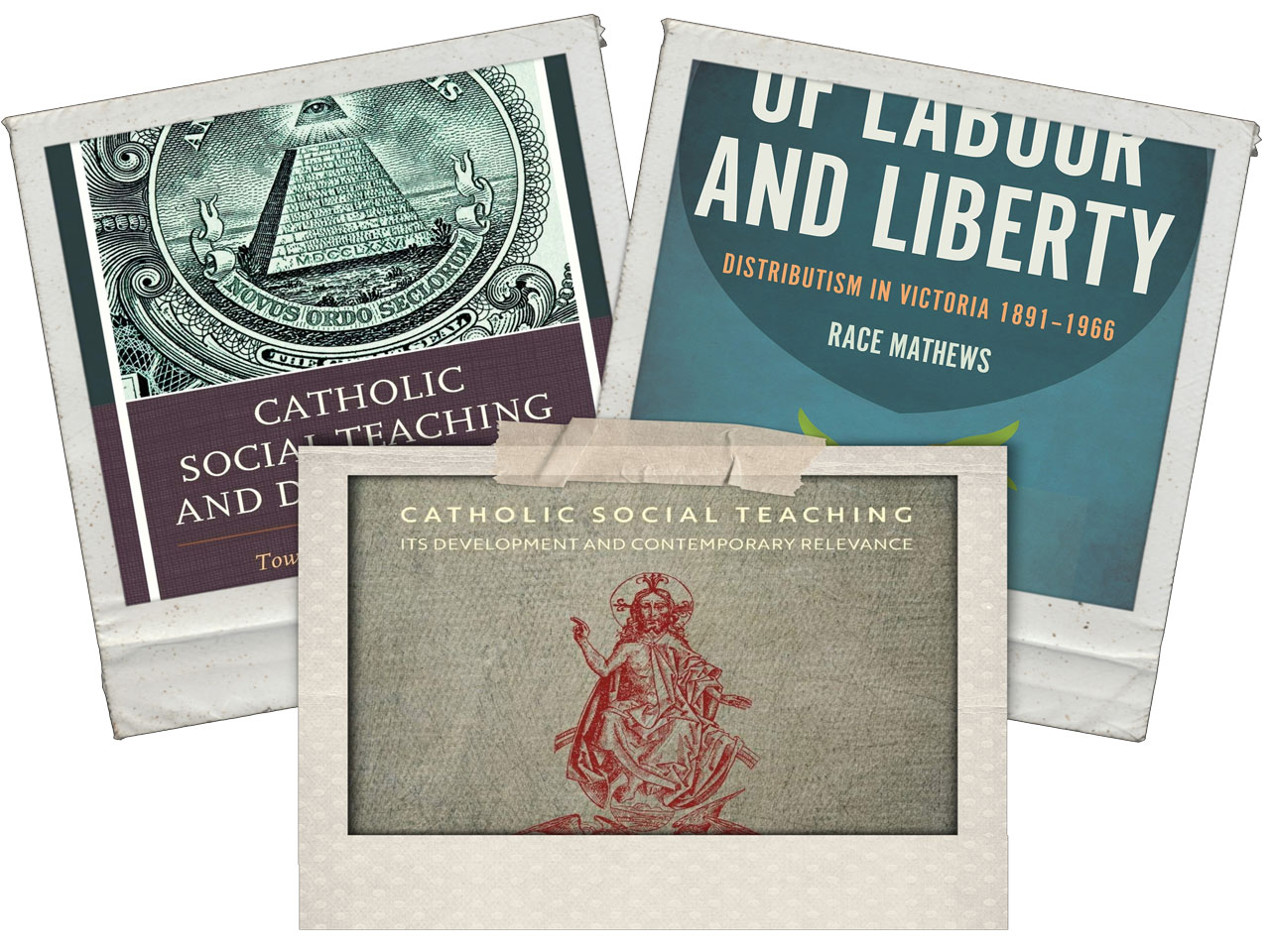“One Big Thing”
- Post by: Allan C. Carlson
- April 7, 2018
Catholic Social Teaching and Distributism: Toward a New Economy by Michael Hickey Hamilton Books, 2017; 166 pages, $19.99 Of Labour and Liberty: Distributism in Victoria, 1891-1966 by Race Mathews University of Notre Dame Press, 2018; 422 pages, $50.00 An Economics of Justice & Charity: Catholic Social Teaching, Its Development and Contemporary Relevance by Thomas Storck Angelico Press, 2017; 182 pages, $24.00 In the words of historian Race Mathews, channeling the late Isaiah Berlin, distributism is like the proverbial hedgehog. It “knows one big thing”: namely, that true social justice can only be gained through a wide distribution of productive property among a people. By “productive property,” distributists mean a homestead, land sufficient for a vegetable garden and simple animal husbandry, and the tools needed for such a venture. They want a “society of owners,” with “property for the people” gained where necessary through state-guided redistribution of housing opportunities and land. In place of capitalist enterprises, which sever ownership and labor, distributists favor cooperatives of all sorts—credit unions, purchasing and marketing co-ops, insurance societies—and worker participation in the ownership and control of necessarily large factories. While there were antecedents, distributism emerged as a direct consequence of the 1891 Papal encyclical Rerum Novarum (The New Age), authored by Pope Leo XIII. While this document was “modern” in its readiness to engage—rather than simply denounce—the emerging urban-industrial order, it was traditional, or agrarian, in its insistence that all wealth derived from the land. As Leo wrote, “it may truly be said that all human subsistence is derived either from labor on one’s own land, or from some toil, some calling, which is paid for either in the produce of the land itself, or on that which is exchanged for
Categories:

